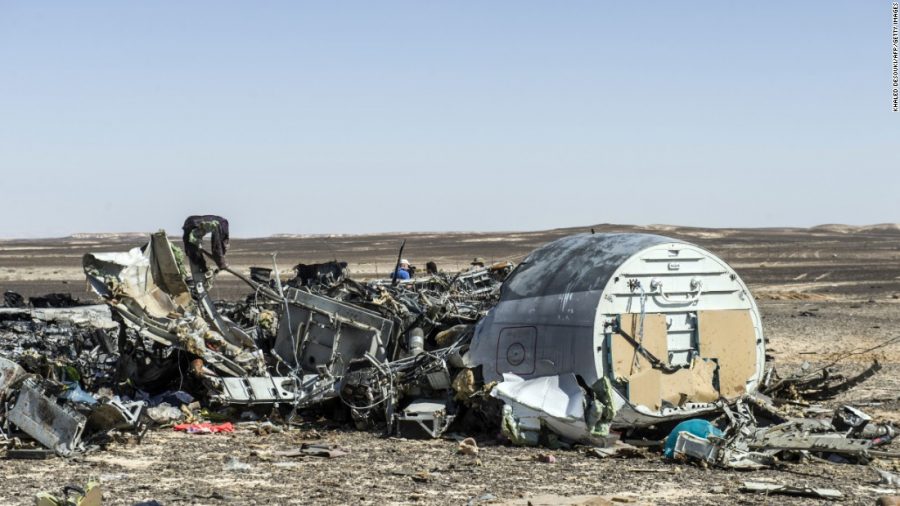By Varun Ravichandran
The unexpected crash of a Russian charter plane over Egypt’s Sinai Peninsula last week left many questions unanswered for leaders and politicians around the world.
Metrojet Flight 9268 had been traveling from the popular Egyptian resort town of Sharm el Sheikh before it went down less than thirty minutes after departure. The remote location of the crash, which killed all 224 on board, made it difficult for officials to identify its exact cause. In the wake of the tragedy, it was reported that technical issues with the airplane itself could have been responsible for the mid-air explosion that brought it down. The next day, Victor Sorochenko, the head of Russia’s Interstate Aviation Committee, suggested that the plane had broken up mid-flight according to the evidence provided.
But as joint Egyptian-Russian investigation teams continued to search for the exact cause of the explosion, more disturbing details began to surface. Almost immediately after the head of Metrojet confirmed that there had been no problems with the plane before the crash, U.S. officials detected evidence of a heat flash originating from within the plane, suggesting that an explosion had occurred from inside. Soon thereafter, the Egypt affiliate of ISIS publicly claimed responsibility for the plane crash, even offering to “disclose the mechanism of its demise.” On November 3, Egyptian rescue workers discovered the black boxes of the plane and detected some unknown but abnormal sounds on in-flight sound recorders, further heightening suspicions of terrorist activity among world leaders.
As growing evidence hinted that the plane’s crash had been perpetrated by terrorists, various politicians and diplomats have been pointing fingers at one another regarding the roots of the attack. While members of the U.S. House of Representatives, such as Adam B. Schiff, have stated that “all the evidence points” towards an Islamic State (ISIS)-led attack, President Obama has been far more restrained in his comments, only remarking that there is a ‘possibility’ that a bomb was responsible for the bomb’s demise.
British tourists stranded at Sharm el Sheikh were flown back home on special flights after all flights to the area were rerouted or canceled. Meanwhile, Western nations have created new security requirements for airports in the area and taken upon a new initiative to upgrade security equipment in airports such as Sharm el Sheikh. But despite the planned improvements, ISIS looms large as a dominant threat capable of working through airport security officers to achieve its goals, according to Representative Peter King of New York.
As the investigators continue to unveil more about the events leading up to the plane crash, the international community becomes more uneasy. The likely involvement of ISIS suggests that if appropriate measures are not taken, this crash may be just the first of many attacks to come.
Image courtesy of cnn.com



























